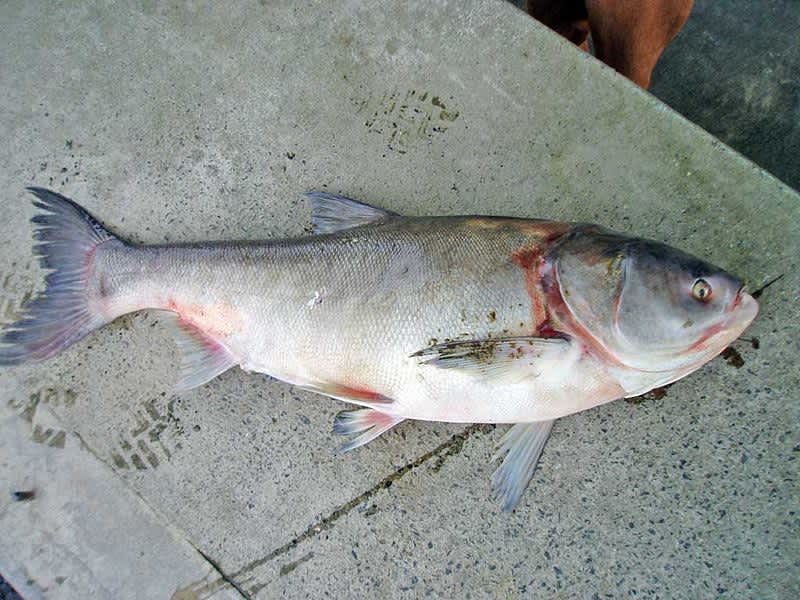Asian Carp Fishery Dispatches First Shipment in Million-pound Order
OutdoorHub Reporters 08.22.13

Two Rivers Fishery in Wickliffe, Kentucky is looking forward to sending out its first 40,000-pound shipment of processed Asian carp to customers in China. The company opened its $2.5 million facility in late May of this year and is already thinking of hiring more fishermen. According to WKMS, Two Rivers Fishery owner Angie Yu says the plant is currently processing around 6,000 pounds of fish a day, but is capable of much more. With a million-pound order from customers in China, plant manager Jeff Smith agrees that the facility will have to step up production.
“It will increase both to the employee and indirectly and directly impact the plant,” he said. “That means more fishermen we have to hire because right now we want to get up to where we can ship two loads a week out, two containers a week.”
Two Rivers Fishery is one of the few commercial operations in the United States that harvest Asian carp for export to Asia. Since the invasive carp was brought over to North America in the late ’60s and early ’70s, the species quickly found its way into the Mississippi River and became well established across much of the region. Wildlife agencies consider carp to be highly detrimental to the environments in which they have been introduced, especially to valuable native fish. Unlike the fish they compete with, Asian carp offer little incentive for fishermen or recreational anglers as there is a low demand for their meat in the United States. Despite this, bowfishing for carp has become popular and is encouraged by conservationists as a way to control the fast-breeding fish. While carp can be delicious if properly prepared, not many anglers eat their catch.
Two Rivers Fishery is now taking advantage of an old idea; why not export the invasive species to Asia where carp are considered a delicacy? The opening of the fishery’s 36,000-square-foot facility was met with the approval of Kentucky Governor Steve Beshear and local leaders, who hope the company will not only take Asian carp out of the state’s waterways, but turn the fish into a valuable resource.

